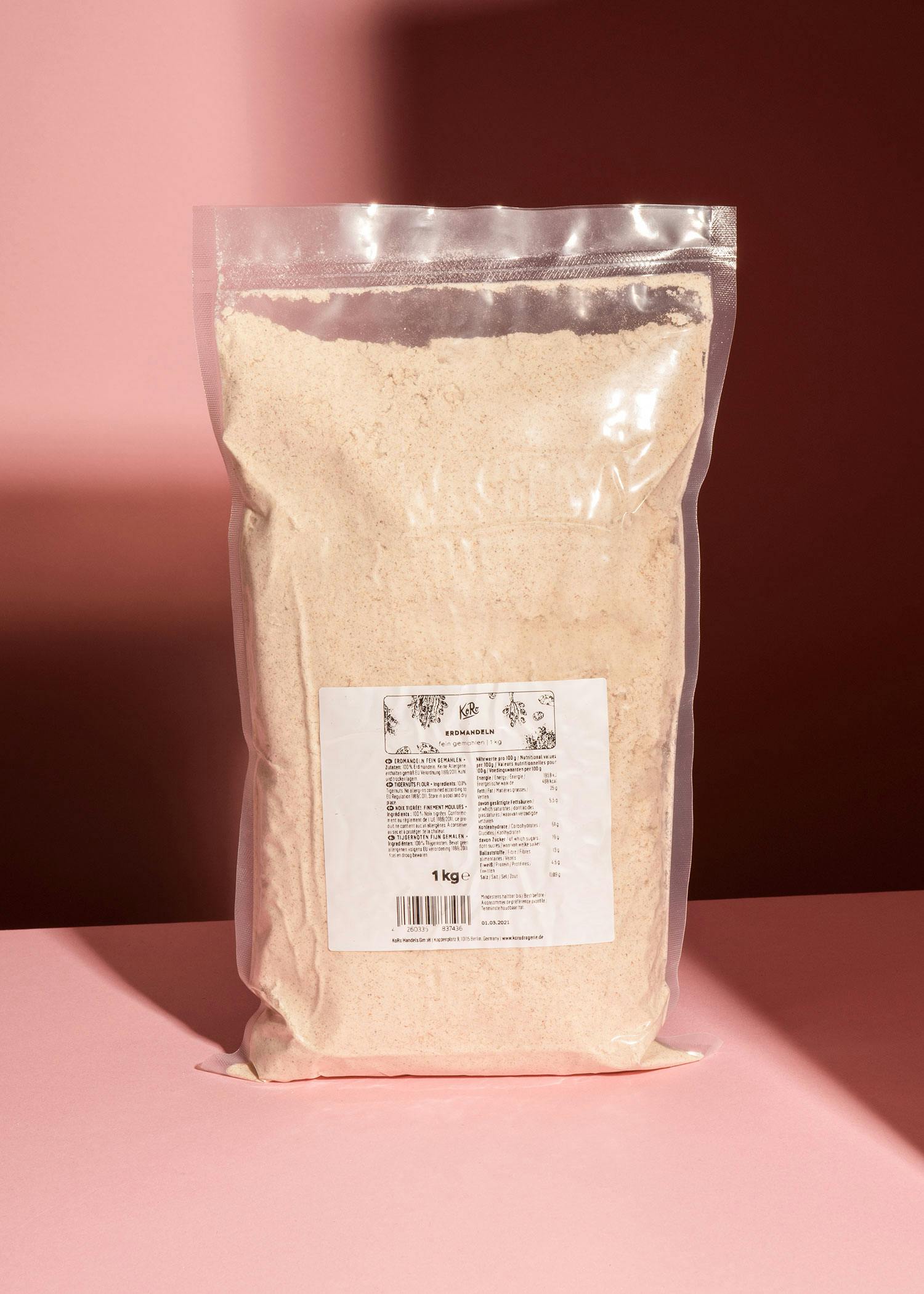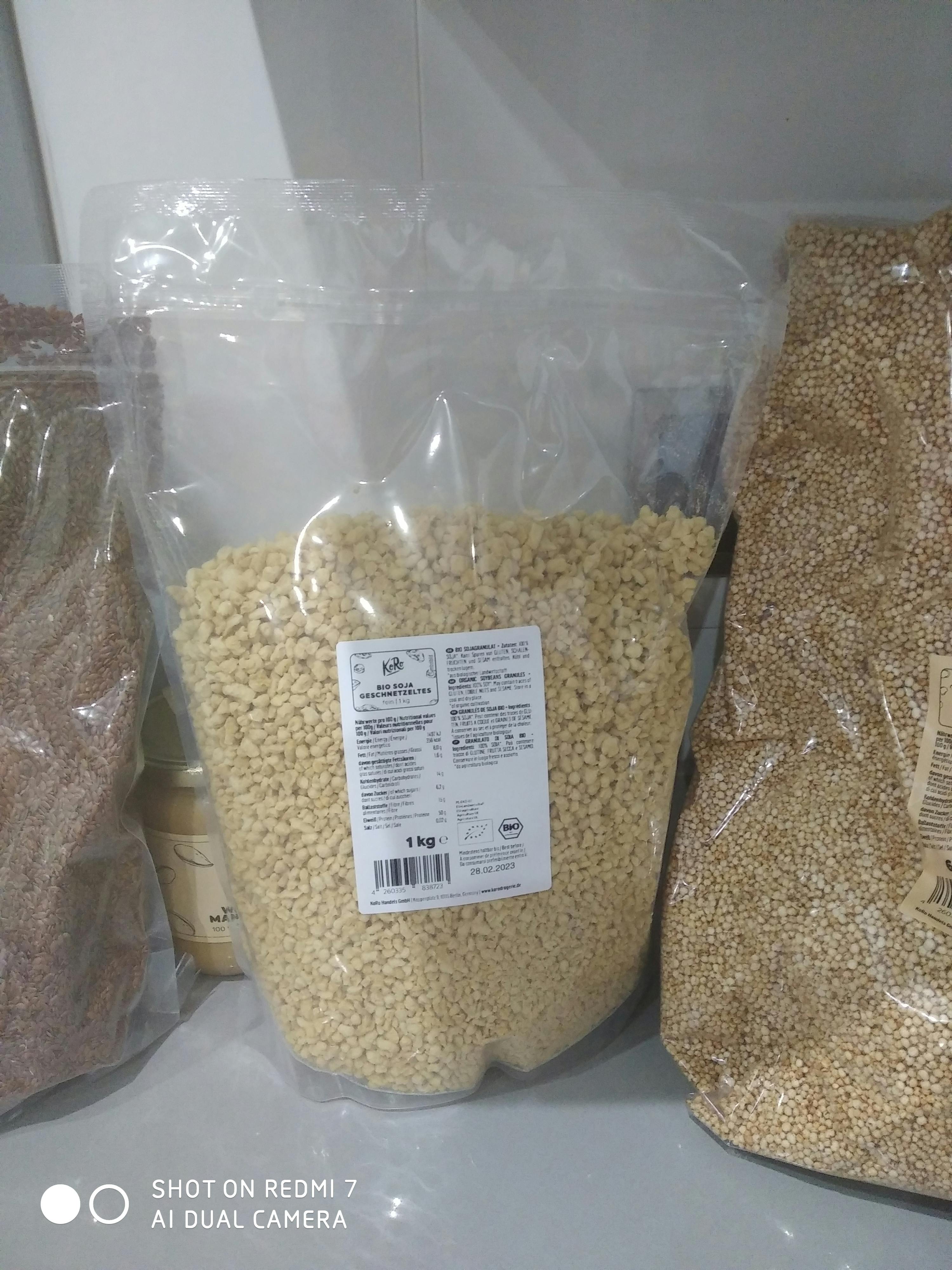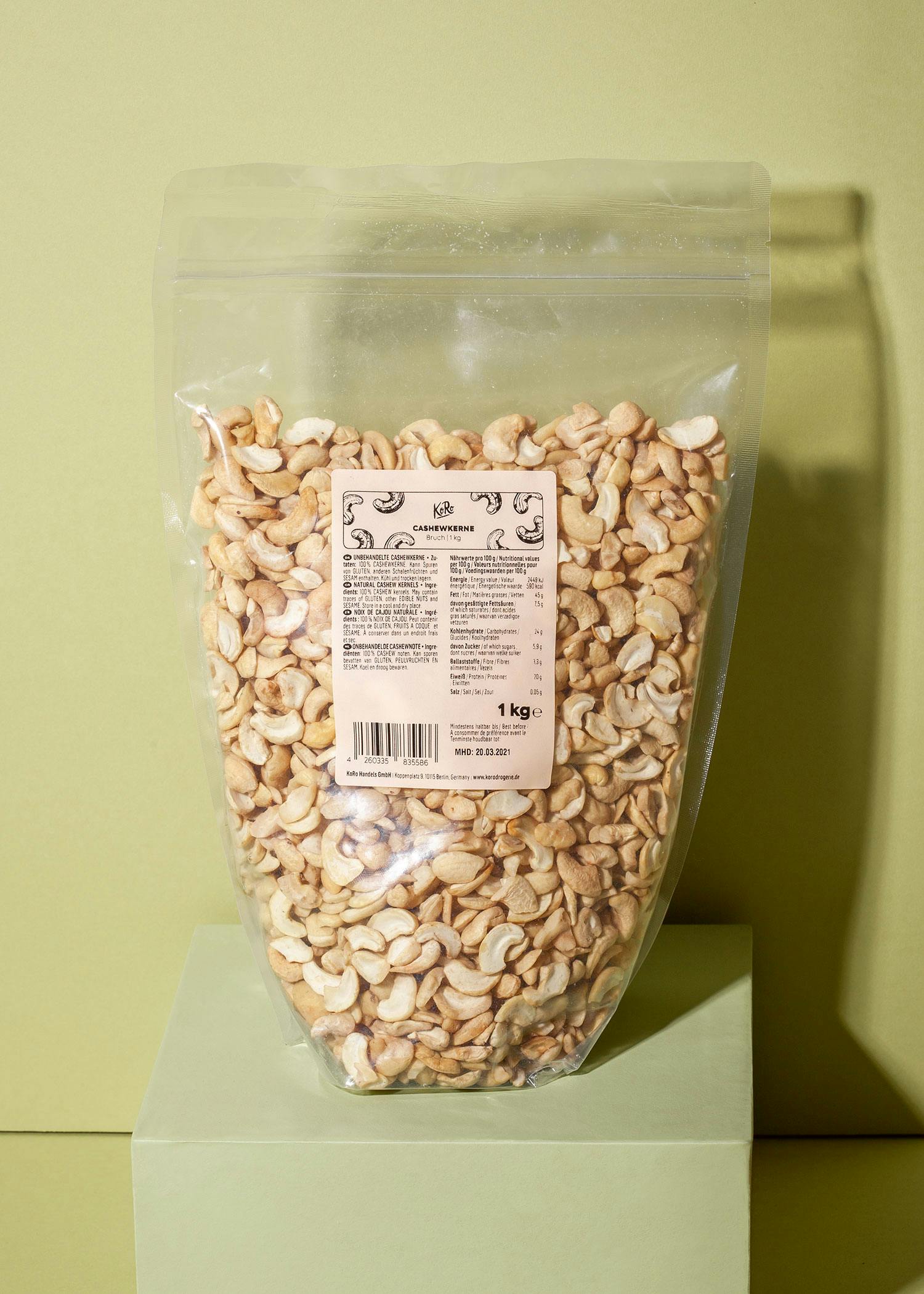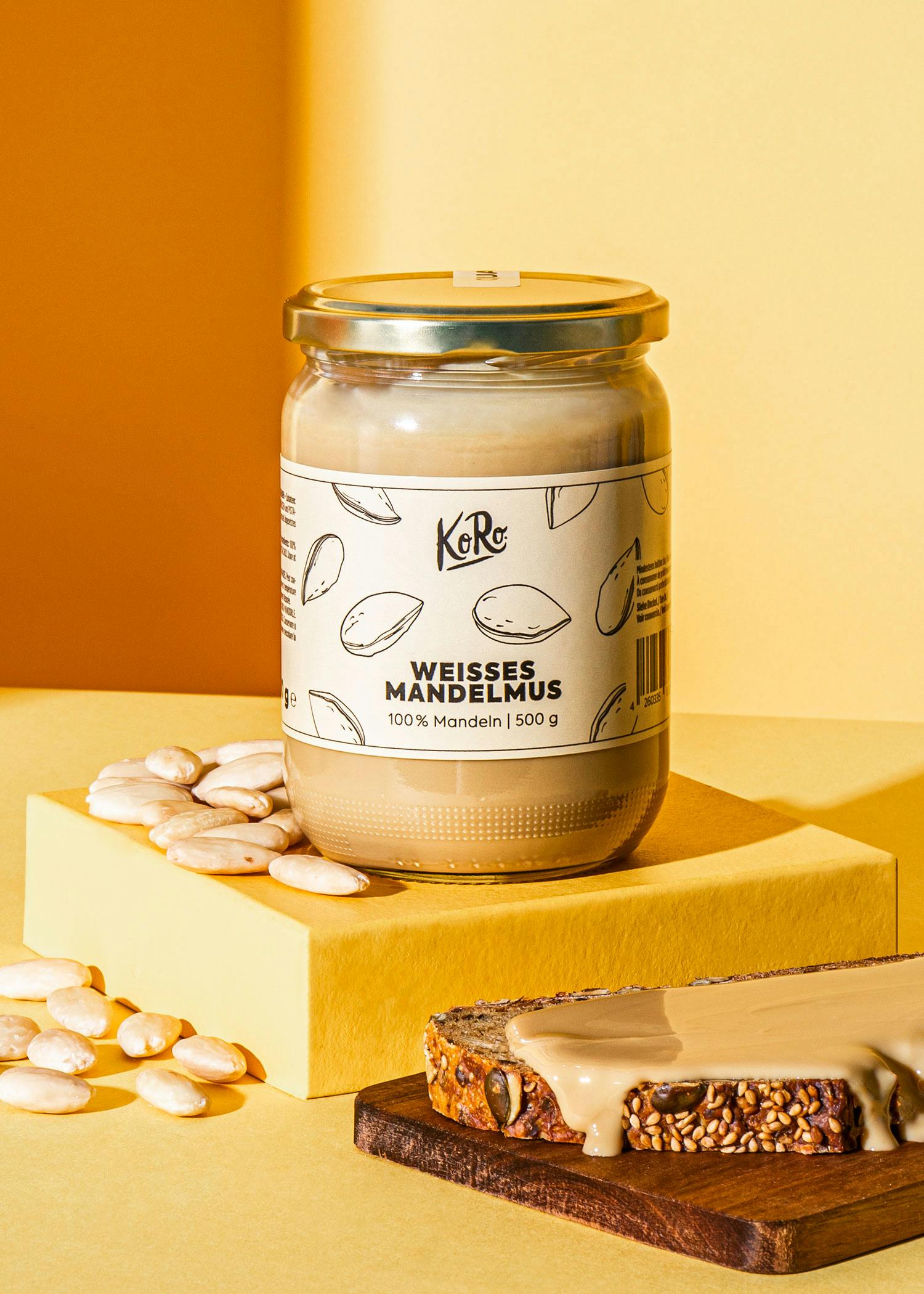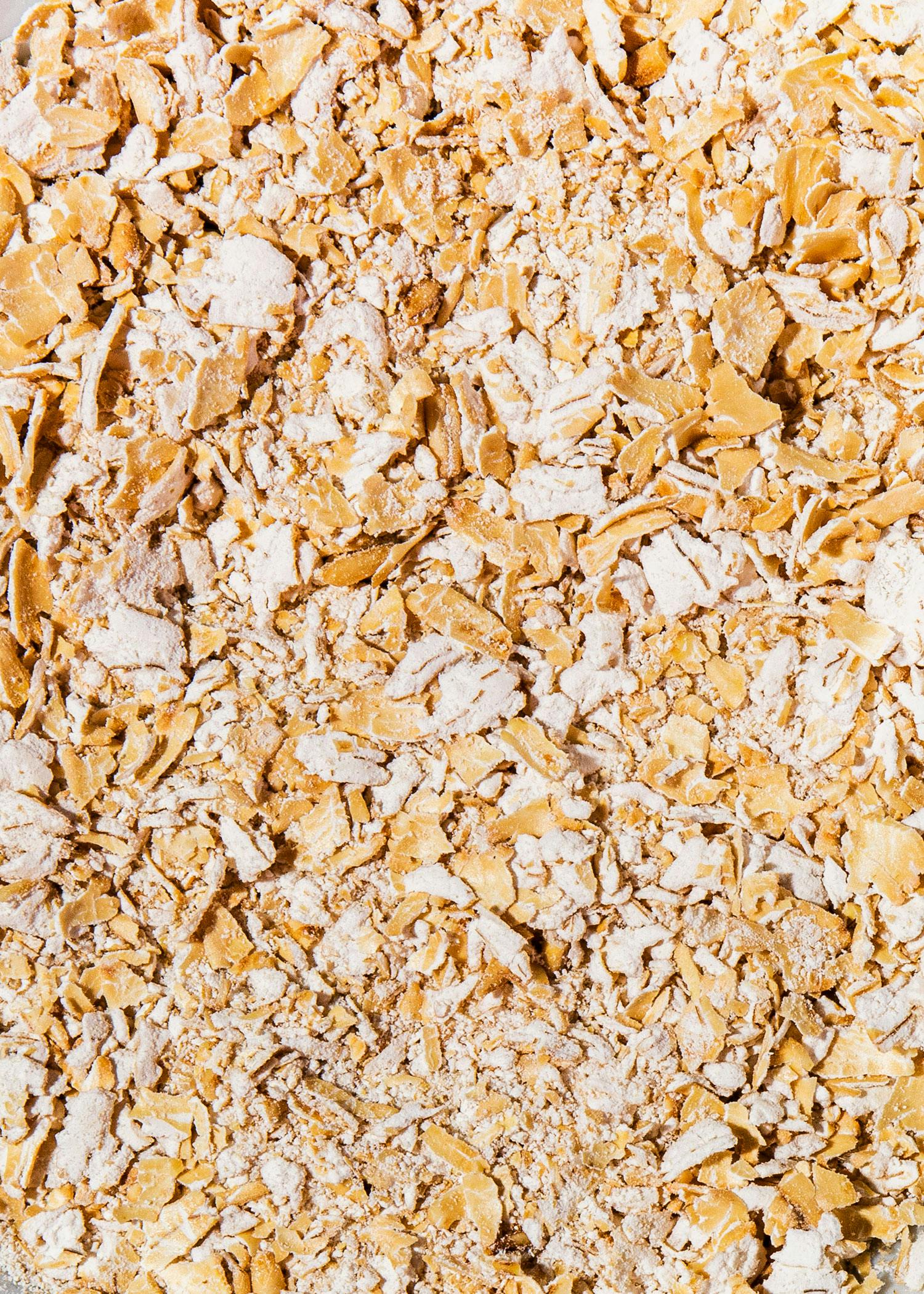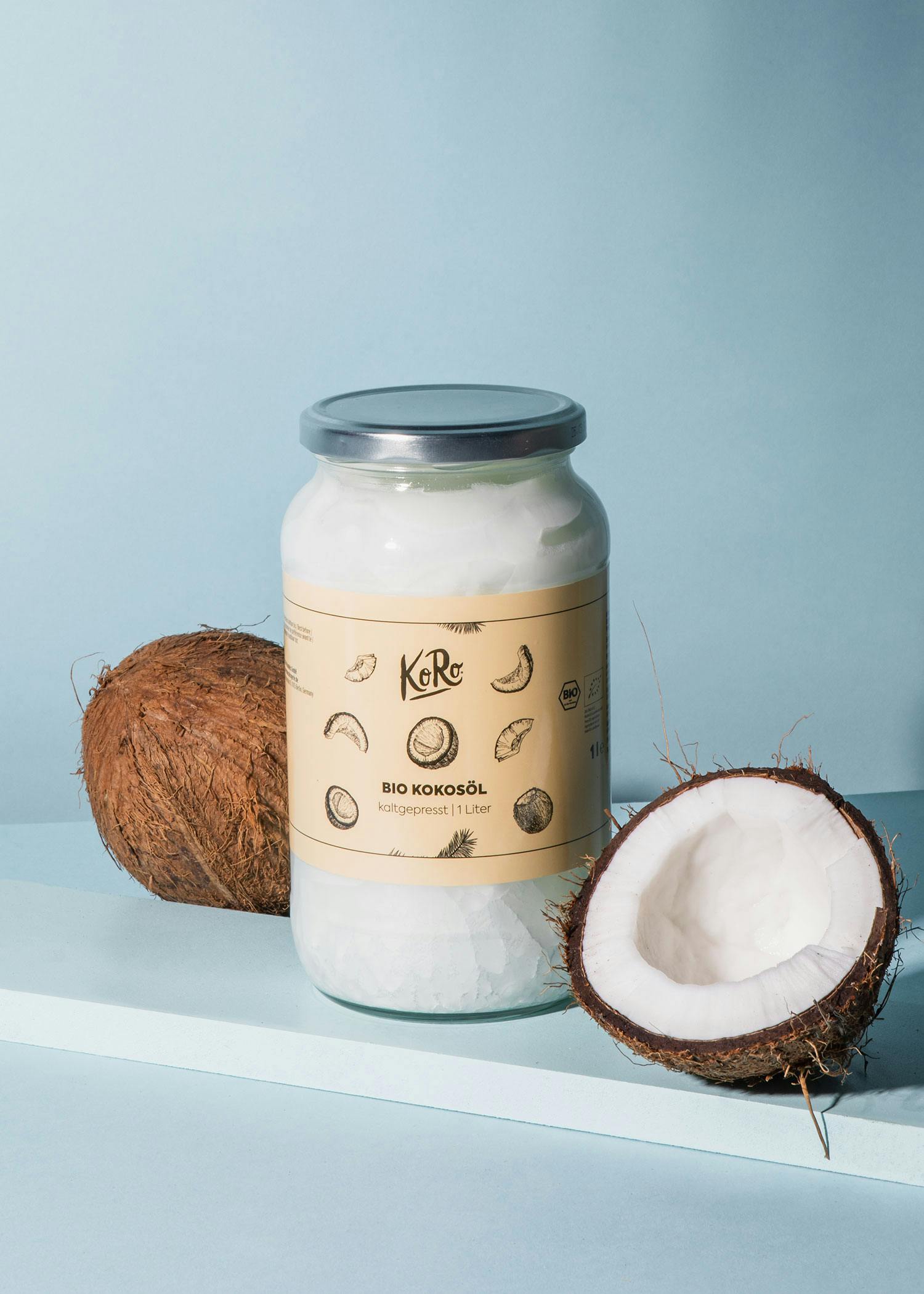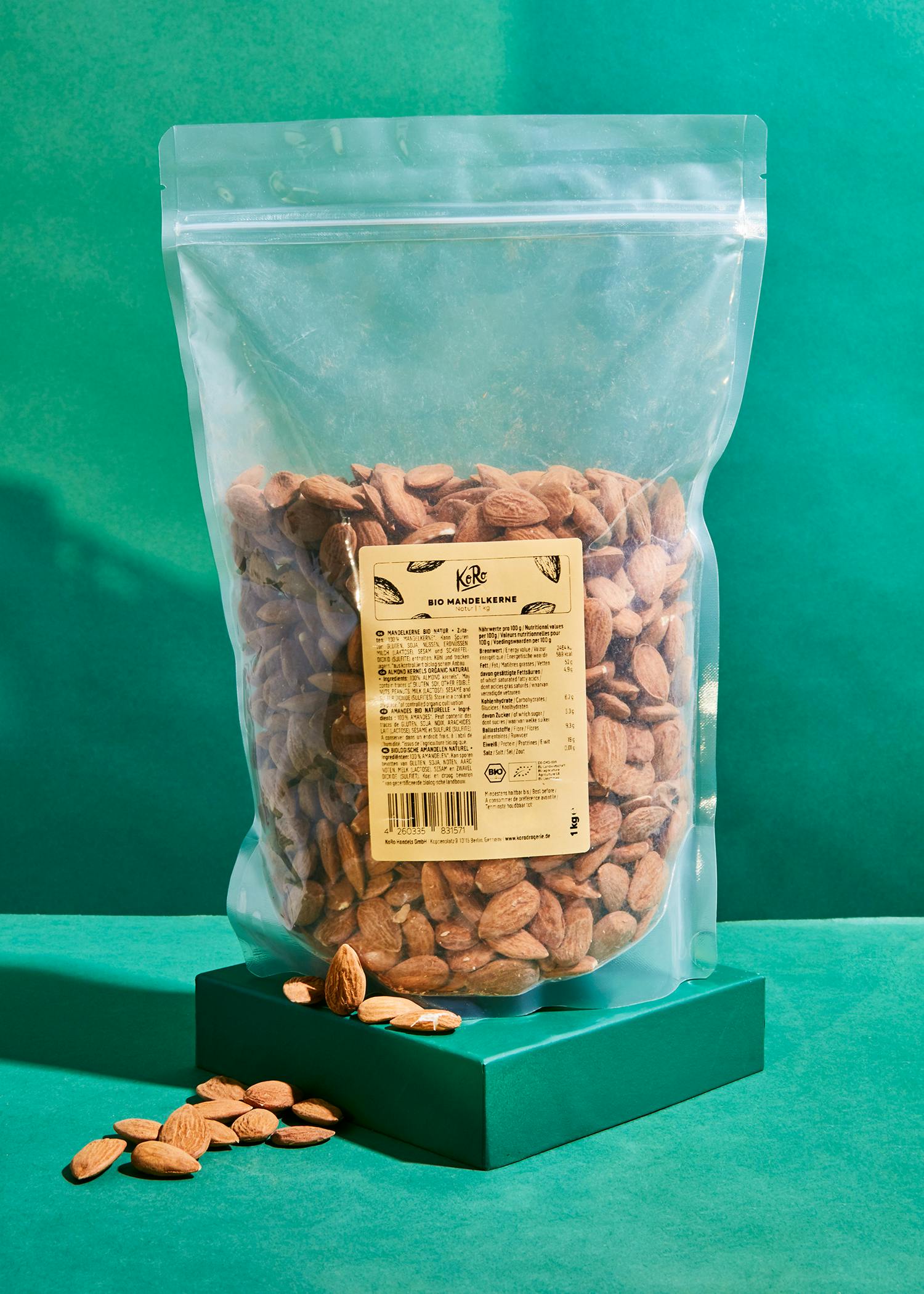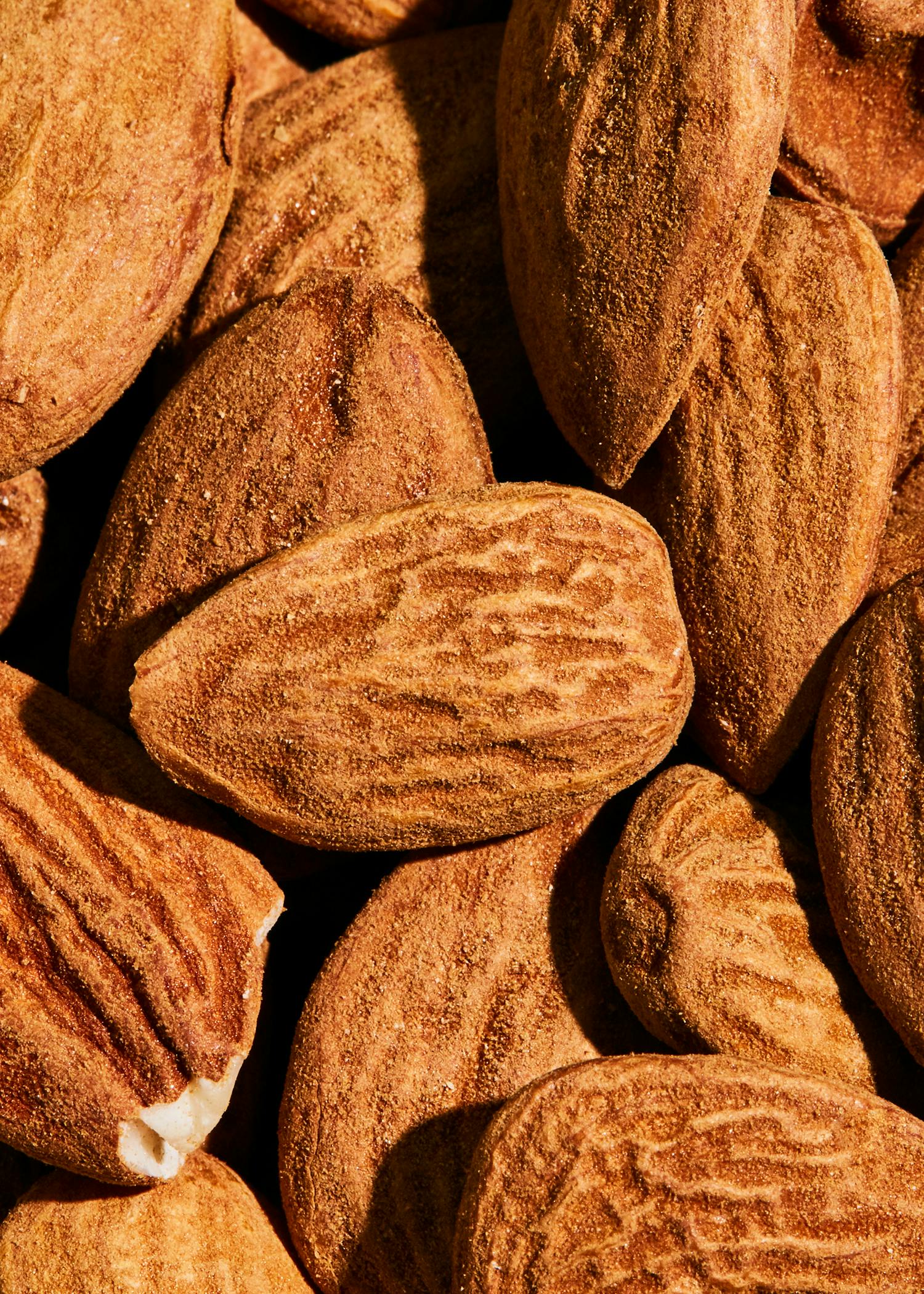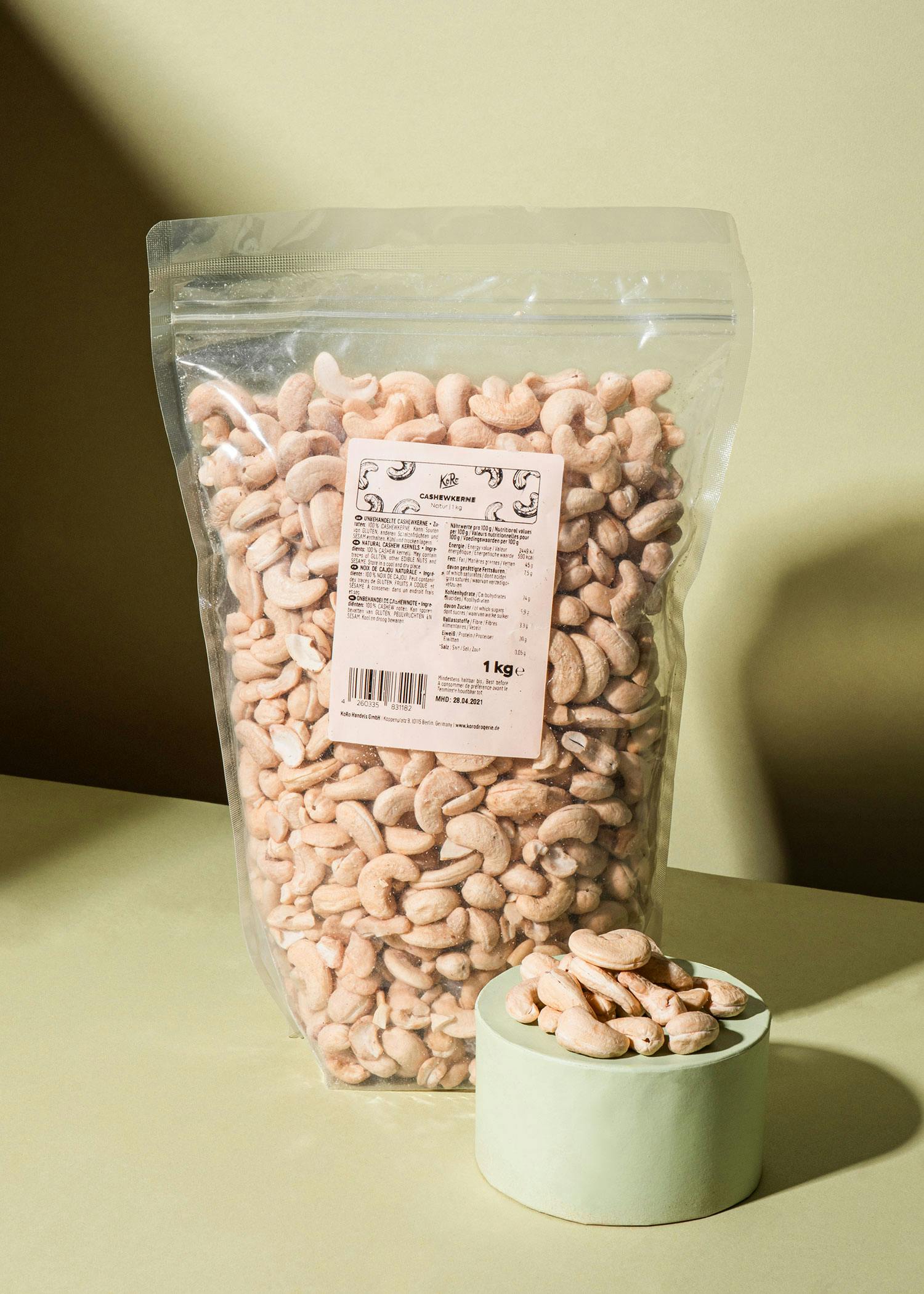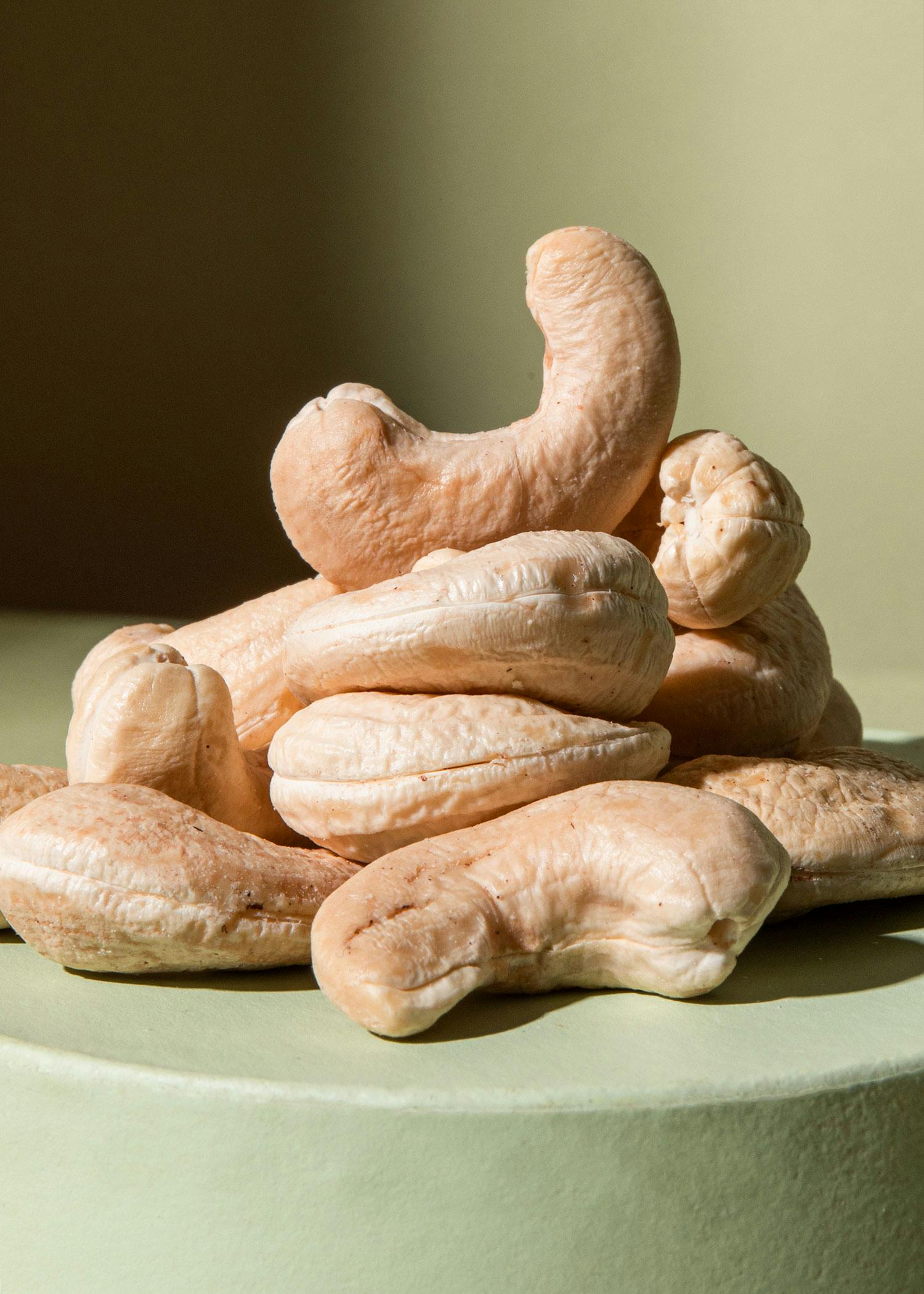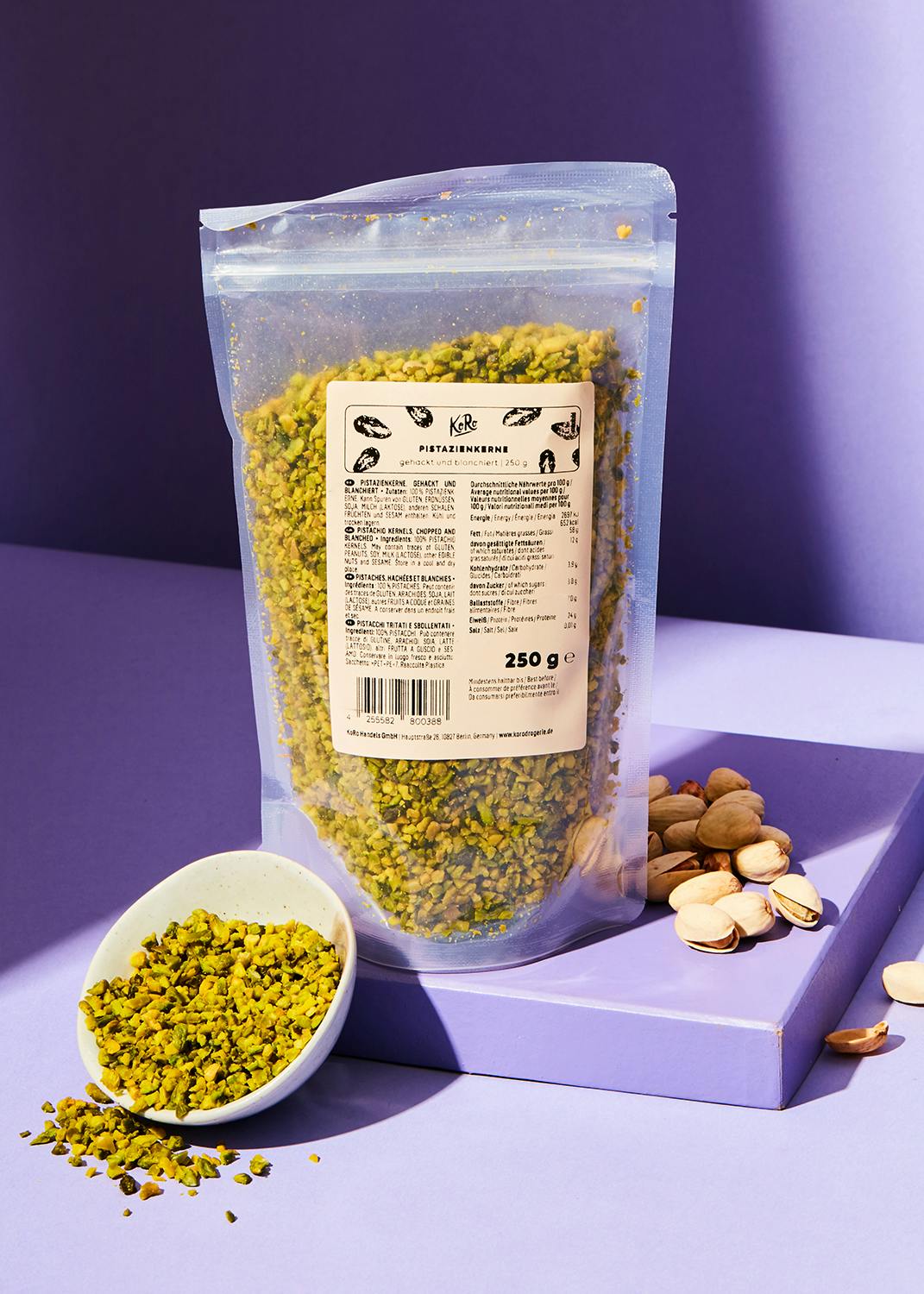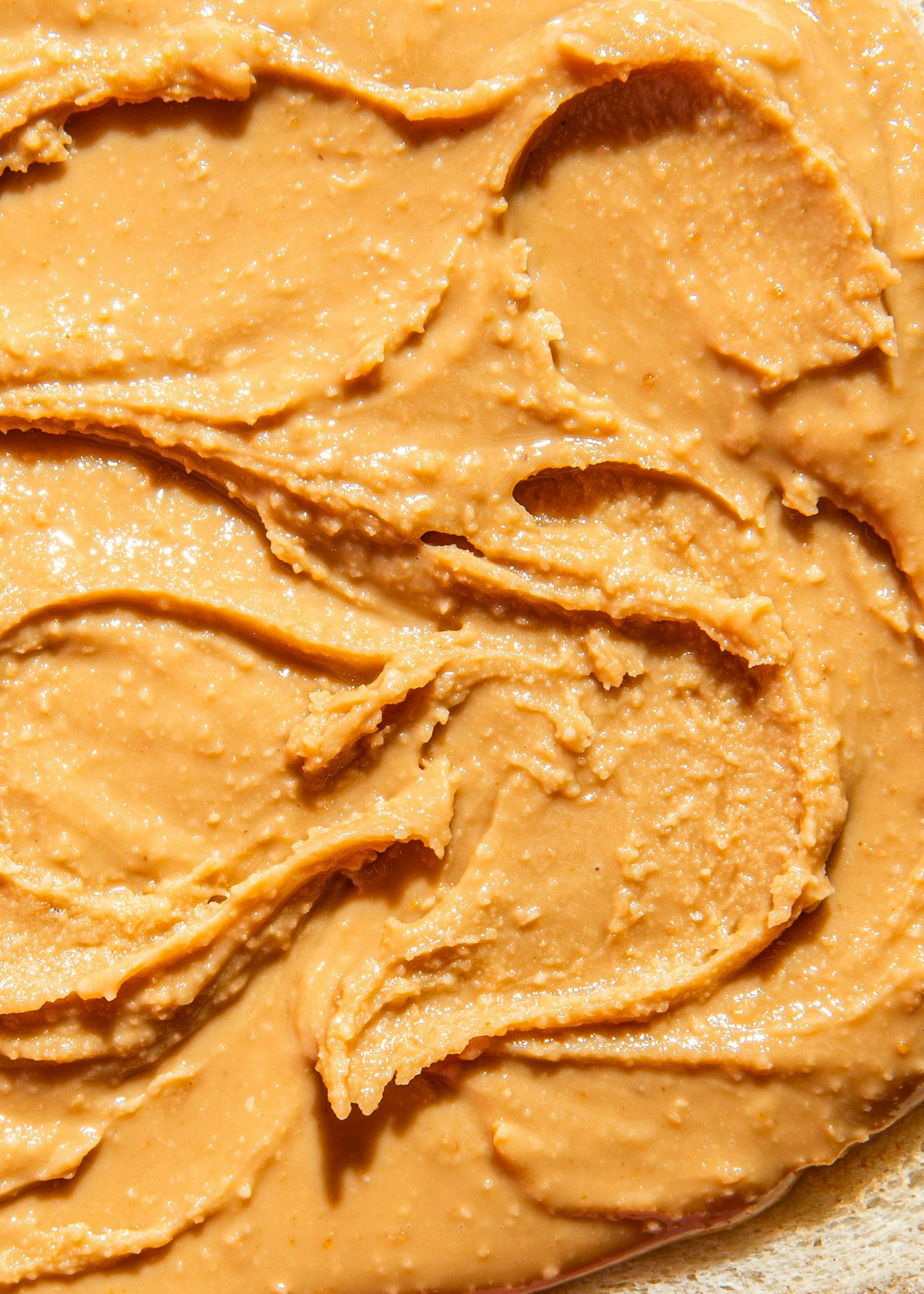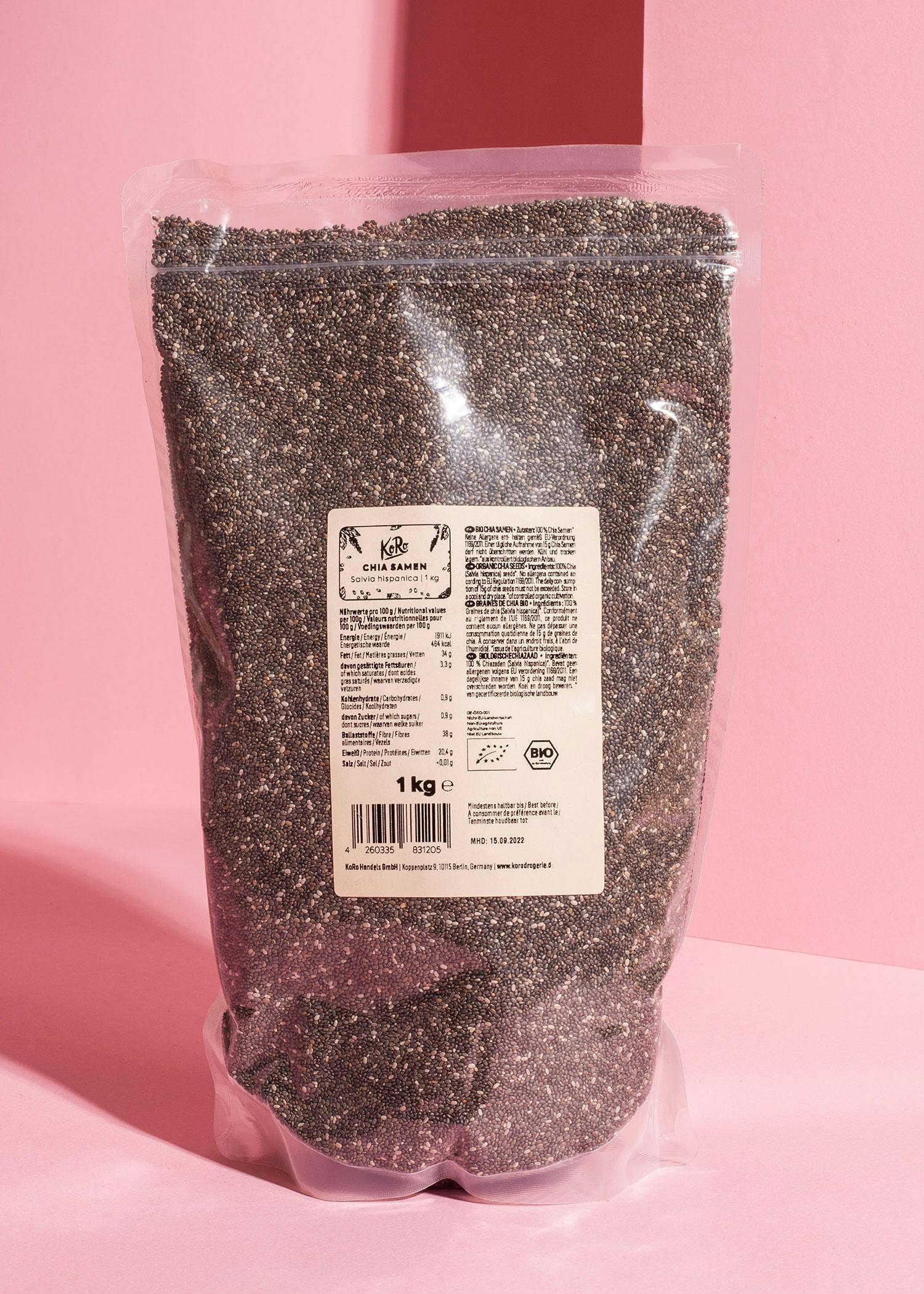
Pay after 30 days.
Available immediately, delivery time 3-5 days
Buy now: Ground tiger nuts 1kg
Tiger nuts ... are they peanuts, almonds or a mixture? What is it about the pea-sized, brown nodules? We got to the bottom of it and went on a little safari to answer this question for you. "Why safari, you ask? Well, because tiger nuts are originally native to Africa! There, by the way, they have been used as a remedy for centuries. But the tiger nut has also arrived in Europe. It is particularly popular over here because it is not really a nut or shell fruit, but a grass plant. This means that even nut allergy sufferers can enjoy it! You want to convince yourself of the nut alternative? Go for it! At KoRo you can buy the ground tiger nuts in the convenient 1 kg value pack online!
Tiger nut – where does the name come from?
The special plant is known as tiger nut. The appearance is particularly striking. The pea-sized, brown balls have stripes on them, just like tigers. That's why they have come to be known as tiger nuts.
Tiger nut: the nut for people with nut allergies?!
Now you're probably wondering why tiger nuts are completely safe for nut allergy sufferers. After all, they are often mentioned in the same breath as peanuts, almonds, hazelnuts and such. Even in KoRo's online shop, tiger nut flour is listed in the nut flour category and our shaved tiger nuts appear under the raw nuts page! If we want to be precise, it is not accurate to list tiger nuts as nuts. Despite the name, tiger nuts are not actual nuts. They come from a sour grass plant which forms brown nodules on its roots — tiger nuts.
Processing ground tiger nuts
The tiger nut has a lot to offer - especially as an alternative to cereals and ground nuts. So tiger nut flour is wonderful for baked goods such as bread, cakes and pastries. Just make sure that you don't replace the wheat flour 1:1. It is best to mix the tiger nut flour with another flour, for example buckwheat flour, to improve the baking quality. Even stirred lightly into yoghurt or porridge, the sweet taste of the ground nodules is convincing and with 14 g of dietary fibre per 100 g, they give you a good start to the day! Tiger nut flour is also a great binder for sauces or soups.
Recipes with ground tiger nuts
Are you still looking for delicious recipes with finely ground tiger nuts? Then try your standard breakfast in a slightly different style: our porridge bread with apples, dates and walnuts can be refined beautifully with tiger nuts and baked in advance, for those mornings where you have no time to spare. Make our incredible no bake chocolate and cherry cake for the next afternoon coffee session without even firing up the oven! You can make many different little sweet treats with tiger nuts, such as black forest cherry balls, chestnut tarts or gingerbread snack bars. If you prefer savoury foods, the tiger nut flour is a great base for pizza dough, flatbreads or quiches.
Buy KoRo's ground tiger nuts
This insightful and informative safari has definitely convinced us that tiger nuts have it all. You don't want to miss out on the finely ground tiger nuts in your kitchen and try out the various recipes? Then go ahead and order the convenient 1 kg value pack in KoRo's online shop!
| Average nutritional values | per 100 g |
|---|---|
| Calorific value (in kj/kcal) | 1958 / 468 |
| Fat | 25 g |
| thereof saturated fatty acids | 5.3 g |
| Carbohydrates | 48 g |
| thereof sugar | 21 g |
| Dietary fiber | 14 g |
| Protein | 4.6 g |
| Salt | 0.08 g |
| Product number: | ERDMAND_001 |
|---|---|
| Best before date | 20.01.2026 |
| Origin | Niger |
| Origin (Processing) | Spain |
| Content | 1 kg |
| Manufacturer | KoRo |
| EAN/GTIN | 4260335837436 |
| Data sheet | Specification |
| Nutrition traces | Nutrition traces |
| Shipping | Delivery time outside of Germany |
| Company |
KoRo Handels GmbH Hauptstraße 26, 10827 Berlin |
| Storage Advice | Store the product in a cool and dry place, protected from light. |
| Ingredients | 100% tiger nuts |
| Trade Name | Finely ground tiger nuts |
| Label note | Ingredients, nutritional values, and packaging may change. For exact information, please check the product description. |
| Press & Resellers | Download cropped photo |
Production
Erdmandeln werden auch “Tigernüsse” oder “Chufas” genannt. Bereits im alten Ägypten wurden sie als Nahrungspflanze kultiviert. Sie gehören zur Gattung der Zypergräser, haben also entgegen ihres Namens nichts mit Mandeln oder Erdnüssen zu tun. Heute werden die Knollen sowohl im Mittelmeerraum, als auch in Ostindien und Brasilien angebaut. Ursprünglich kommen sie aber vermutlich aus Afrika. Hier sind auch unsere Erdmandeln beheimatet. In Niger ist fleißiges Wachsen angesagt!
Erdmandeln wachsen am liebsten in sandigem Boden. Zwischen April und Mai wird die Pflanze eingesetzt, bis September darf sie dann groß werden. Danach ist Trocknungszeit! Bis November oder Dezember trocknen die Erdmandeln unter der Erde auf den Feldern, bevor sie bis März des folgenden Jahres mit einer Erntemaschine geerntet werden.
Bis die Erdmandel so aussieht, wie auf diesem Bild, dauert es eine ganze Weile: Nach der Ernte wird das oberirdische Blattwerk maschinell entfernt. Danach wird die Erde abgesiebt und die übrig gebliebenen Knollen werden gewaschen. Jetzt wird wieder getrocknet, diesmal aber in einer großen Halle und für drei Monate. Die Erdmandeln werden regelmäßig gewendet, damit sie schön gleichmäßig trocknen. Nach dieser Beauty-Prozedur sind sie nun endlich verzehrfertig!
Der letzte Schritt geht dafür umso schneller: Die Erdmandeln werden in unserem Werk in Spanien gehobelt bzw. gemahlen und sofort in unsere großen 1 kg-Vorteilspackungen abgefüllt. Jetzt sind sie bereit für Deine Koch- und Backaktionen!"
This is how the price has developed over time
All data without guarantee!
Login
4-5 star reviews 🙂
Beautiful
1-3 star reviews 🙃
Tigernuts at last!!
Again and again with pleasure
Full recommendation
delicious delicious
Highly recommended
Adds to breakfast porridge in the morning
Flawless ground tiger nuts
Good stuff for homemade porridge
Very highly recommended
